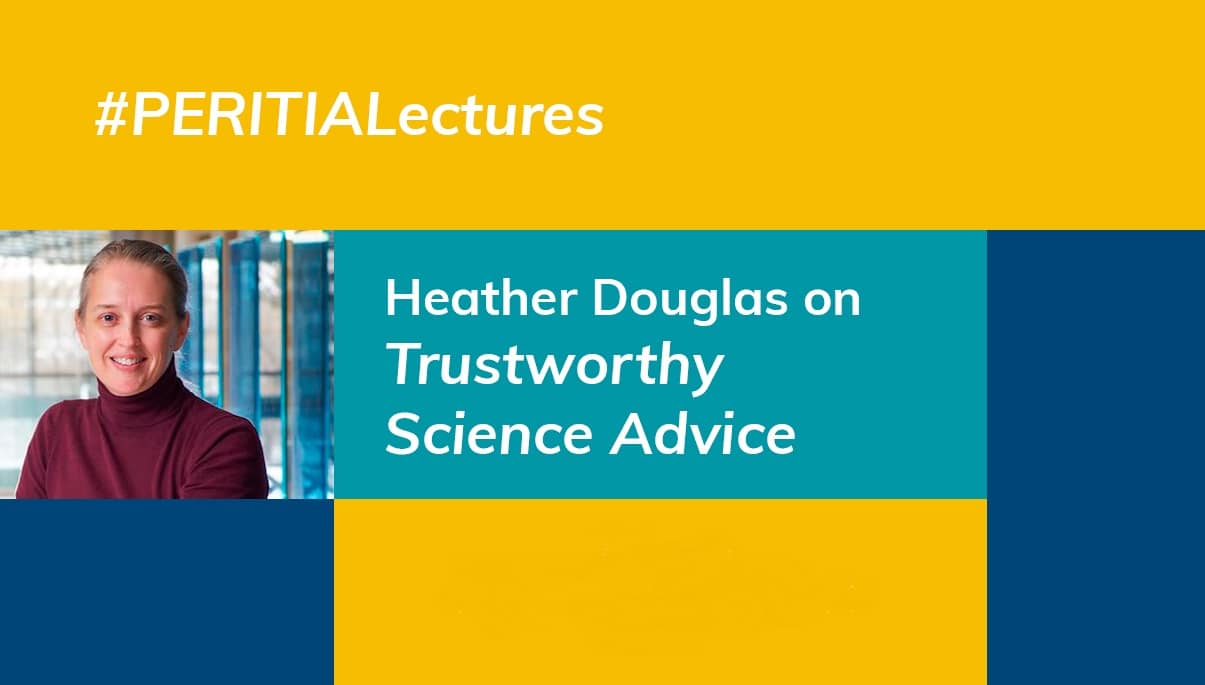
Watch Heather Douglas on Trustworthy Science Advice
Philosopher Heather Douglas (Michigan State University) is one of the leading figures investigating the intersection between science and democracy. In a new lecture of the PERITIA series “[Un]Truths: Trust in an Age of Disinformation“, she presented a practical framework to identify trustworthy science advice.
According to her, one of the most challenging aspects of science advice for policy is building a framework for trust in such advice. Although science advice is not determinative of good policy, science advising is crucial for making good policy. But in order for advice to have its helpful effect, it has to be trusted. What should ground that trust?
The bases for trust in science in general are to be found in:
1) the nature of expertise,
2) the social structure of science, and
3) scientists having the right values.
For the science advisor, these aspects of general trust in science are complicated by the special obligations the science advisor has to the scientific community, their advisees, and the public in democratic systems. Yet the nature of these obligations, if understood properly, should further enhance the general account of trust for science in the case of the science advisor. Such an understanding also moves us past the ideal of the “independent science advisor” to a fuller picture of the set of obligations that makes science advice reliable.
You can watch her lecture and the past talks of our series on our YouTube channel.
About Heather Douglas
Heather Douglas is an Associate Professor in the Department of Philosophy and a member of the Socially Engaged Philosophy of Science Group at Michigan State University. She received her Ph.D. from the History and Philosophy of Science Department at the University of Pittsburgh in 1998, and has held tenure-line faculty positions at the University of Puget Sound, the University of Tennessee, and the University of Waterloo. She is the author of Science, Policy, and the Value-Free Ideal (2009) as well as numerous articles on values in science, the moral responsibilities of scientists, and the role of science in democratic societies. She edits the book series Science, Values, and the Public for University of Pittsburgh Press.
Her work has been supported by the U.S. National Science Foundation and the Social Sciences and Humanities Research Council of Canada. In 2016, she was named a AAAS fellow. She is also a fellow of the Institute for Science, Society, and Policy at the University of Ottawa. In 2020, she was the lead organizer for the Public Engagement with Science: Defining and Measuring Success conference. In 2021, she will be the Senior Visiting Fellow at the Center for Philosophy of Science at the University of Pittsburgh.


